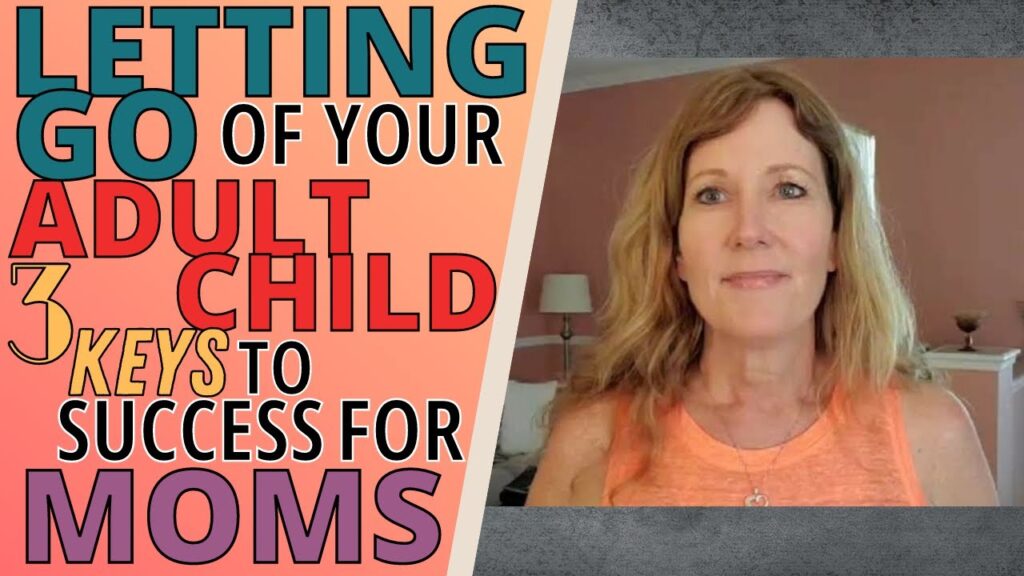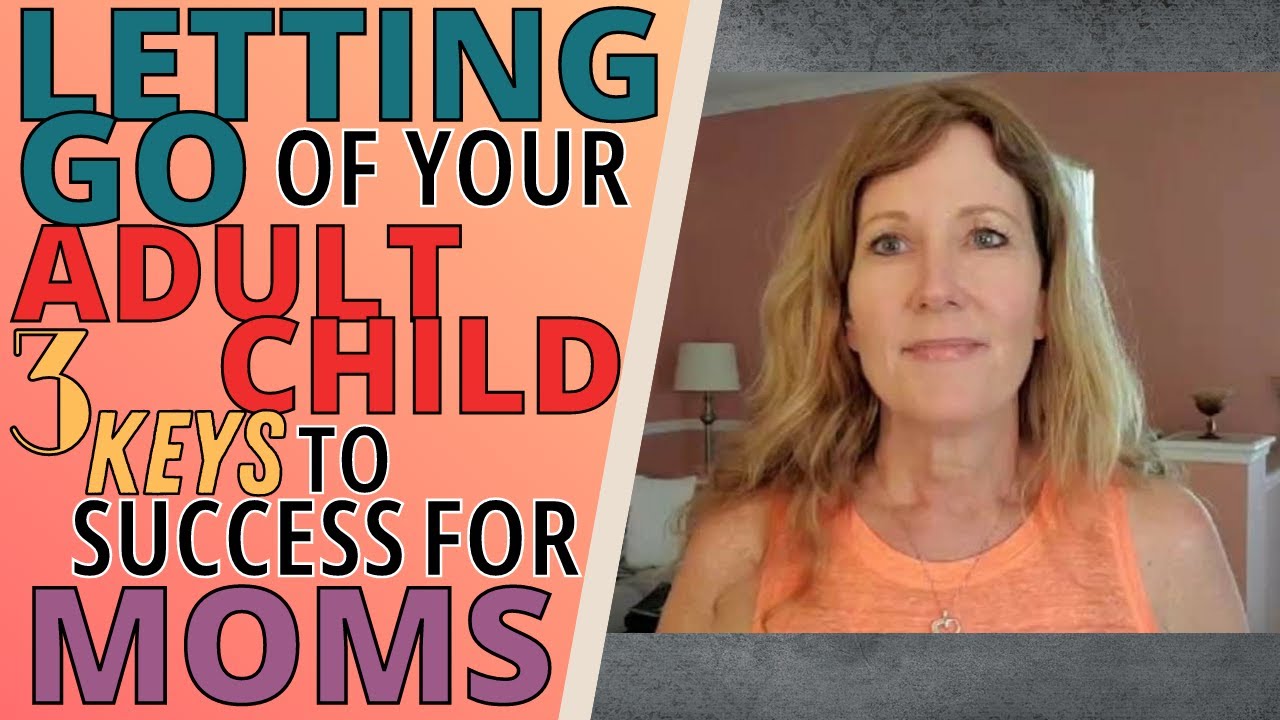
Letting Go of Your Adult Children: A Guide for Parents
The transition from parenting dependent children to relating to independent adults is a significant milestone for both parents and their offspring. Letting go of your adult children is a natural, albeit often challenging, part of the family lifecycle. It requires a shift in perspective, a recalibration of expectations, and a conscious effort to redefine the parent-child relationship. This article explores the complexities of this transition, offering practical advice and insights for parents navigating this new chapter.
Understanding the Need to Let Go
Why is letting go of your adult children so important? The answer lies in fostering their independence, promoting their self-reliance, and respecting their autonomy. Holding on too tightly can stifle their growth, hinder their decision-making abilities, and ultimately damage your relationship. As children mature into adults, they need the space to make their own choices, learn from their mistakes, and chart their own course in life. Over-involvement can communicate a lack of trust in their capabilities and undermine their confidence.
Consider the story of Sarah, a 24-year-old recent graduate who felt suffocated by her parents’ constant involvement in her career search. Despite having a degree in marketing, her parents insisted she apply for positions in finance, a field they deemed more stable. Sarah felt her own aspirations were being disregarded, leading to resentment and strained communication. This illustrates how failing to let go of your adult children can lead to conflict and impede their journey to self-discovery.
The Challenges of Letting Go
Letting go of your adult children is not without its challenges. For many parents, their identity is deeply intertwined with their role as caregivers. Seeing their children launch into adulthood can trigger feelings of loss, emptiness, and even fear. The empty nest syndrome, characterized by sadness and loneliness when children leave home, is a common experience. Furthermore, parents may struggle to relinquish control, especially if they have strong opinions about their children’s life choices. Financial concerns, worries about their safety, and anxieties about their well-being can also make it difficult to step back.
- Fear of Failure: Parents may worry about their children making mistakes or experiencing setbacks.
- Loss of Control: Relinquishing control over their children’s lives can be unsettling.
- Empty Nest Syndrome: The absence of children at home can lead to feelings of loneliness and sadness.
- Financial Concerns: Parents may worry about their children’s financial stability.
Practical Strategies for Letting Go
Despite the challenges, letting go of your adult children can be a positive and empowering experience for both parents and their offspring. Here are some practical strategies to navigate this transition successfully:
Establish Clear Boundaries
Setting boundaries is crucial for maintaining healthy relationships. Discuss expectations openly and respectfully, ensuring that both parties understand each other’s needs and limitations. For example, agree on the frequency of communication, the level of involvement in decision-making, and the extent of financial support. [See also: Setting Healthy Boundaries with Adult Children]
Respect Their Choices
Adult children have the right to make their own choices, even if those choices differ from their parents’ preferences. Avoid imposing your opinions or trying to control their decisions. Instead, offer support and guidance when asked, but ultimately respect their autonomy. Remember, their experiences, even the challenging ones, are crucial for their growth and development. Letting go of your adult children means trusting their judgement.
Focus on Building a New Relationship
The parent-child relationship evolves as children mature into adults. Shift your focus from being a caregiver to being a supportive friend and confidante. Engage in activities you both enjoy, share common interests, and foster open communication. This new relationship can be just as fulfilling, if not more so, than the one you had when they were younger. Consider taking a class together, attending a concert, or simply having regular coffee dates to strengthen your bond.
Practice Active Listening
When your adult children share their thoughts and feelings, practice active listening. Pay attention to what they are saying, ask clarifying questions, and validate their emotions. Avoid interrupting, judging, or offering unsolicited advice. Simply being present and supportive can make a world of difference. Letting go of your adult children also means listening to their needs.
Seek Support for Yourself
Letting go of your adult children can be emotionally challenging. Don’t hesitate to seek support from friends, family members, or a therapist. Talking about your feelings and concerns can help you process your emotions and develop healthy coping mechanisms. Joining a support group for parents of adult children can also provide valuable insights and encouragement. Remember, taking care of your own well-being is essential for supporting your children.
Embrace Your Own Interests
With more time and freedom, explore new interests and hobbies. Pursue passions you may have put on hold while raising your children. This is an opportunity to rediscover yourself and create a fulfilling life beyond parenting. Travel, volunteer, take a class, or join a club. Engaging in activities you enjoy will not only enhance your own well-being but also provide a positive example for your children. Letting go of your adult children allows you to rediscover yourself.
Avoid Enabling Behavior
While it’s natural to want to help your children, avoid enabling behavior that hinders their independence. This includes providing excessive financial support, rescuing them from their mistakes, or making excuses for their actions. Instead, encourage them to take responsibility for their own lives and learn from their experiences. Letting go of your adult children means allowing them to face the consequences of their choices.
Communicate with Empathy
When discussing difficult topics or expressing concerns, communicate with empathy and understanding. Avoid accusatory language or judgmental tones. Instead, focus on expressing your feelings in a calm and respectful manner. For example, instead of saying “You’re always making bad decisions,” try saying “I’m concerned about the choices you’re making, and I want to understand your perspective.” Empathetic communication can foster trust and strengthen your relationship. It’s vital when letting go of your adult children.
Trust the Process
Letting go of your adult children is a process, not an event. There will be ups and downs, successes and setbacks. Trust that your children are capable of navigating their own lives and that they will learn and grow from their experiences. Have faith in their abilities and offer your support when needed. Remember, you have equipped them with the tools they need to succeed. Letting go takes time and patience.
The Benefits of Letting Go
Letting go of your adult children offers numerous benefits for both parents and their offspring. It fosters independence, promotes self-reliance, strengthens relationships, and allows for personal growth. When parents relinquish control and trust their children’s abilities, they create space for them to thrive. This, in turn, can lead to a more fulfilling and meaningful relationship based on mutual respect and understanding. The benefits of letting go of your adult children are profound.
Consider the case of Mark, whose parents initially struggled to accept his decision to pursue a career in music. They had always envisioned him becoming a lawyer, but Mark’s passion lay in composing and performing. Eventually, his parents realized that their son’s happiness was more important than their own expectations. They began attending his concerts, supporting his artistic endeavors, and celebrating his successes. As a result, their relationship flourished, and Mark felt empowered to pursue his dreams. This demonstrates how letting go of your adult children can lead to greater happiness and fulfillment for both generations.
Conclusion
Letting go of your adult children is a transformative experience that requires patience, understanding, and a willingness to redefine the parent-child relationship. By establishing clear boundaries, respecting their choices, fostering open communication, and seeking support for yourself, you can navigate this transition successfully. Remember that letting go of your adult children is not about abandoning them but about empowering them to live their own lives to the fullest. Embrace this new chapter with confidence and enjoy the rewards of a mature and fulfilling relationship with your adult children.

